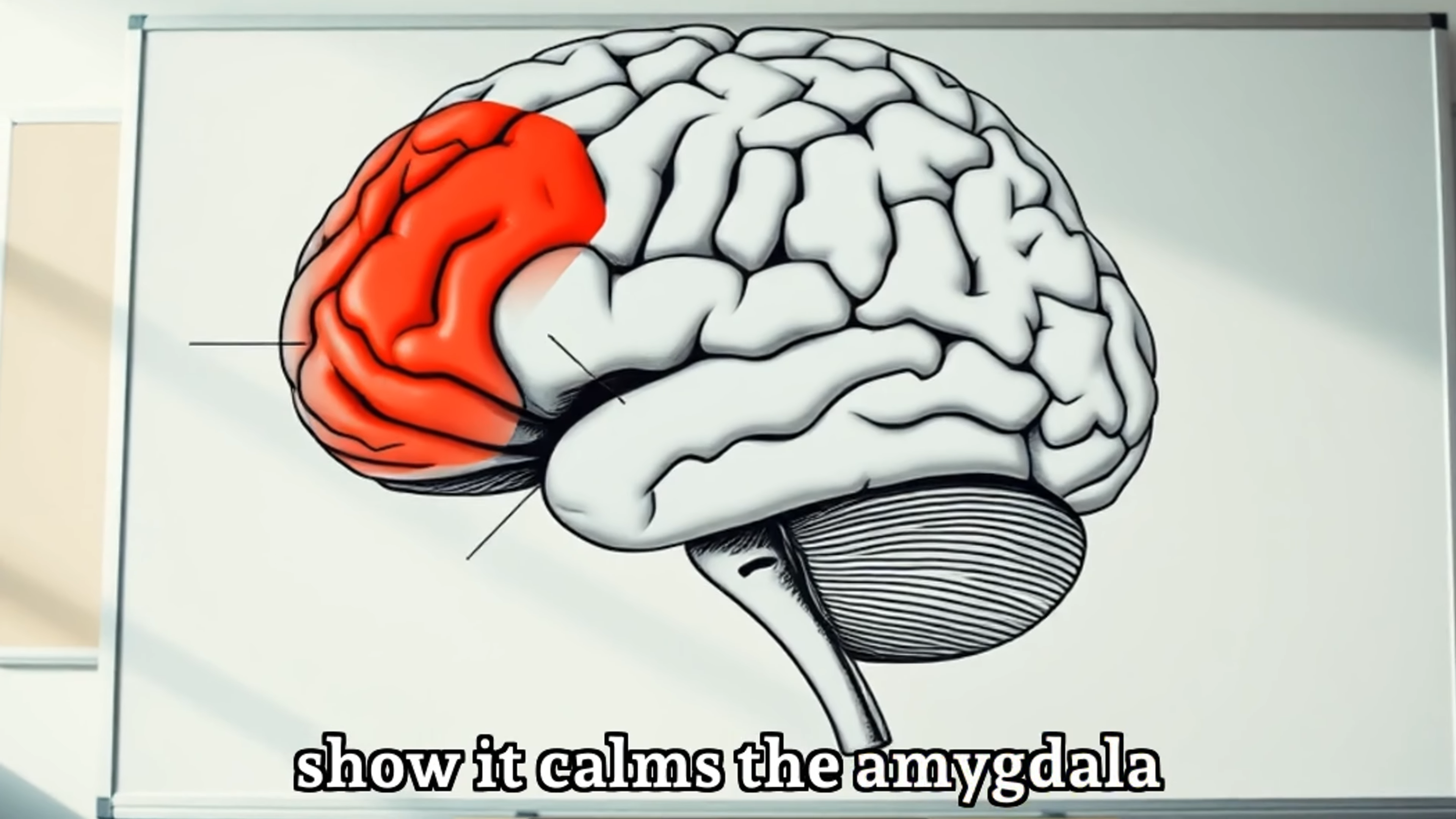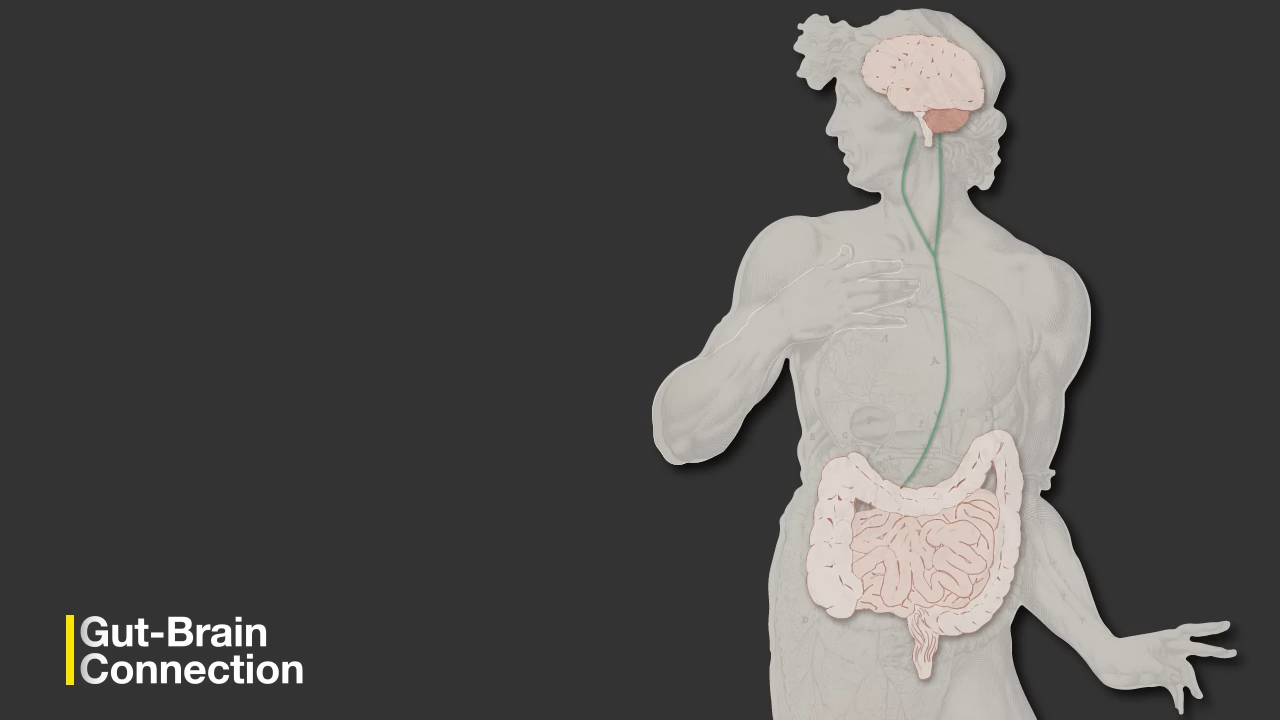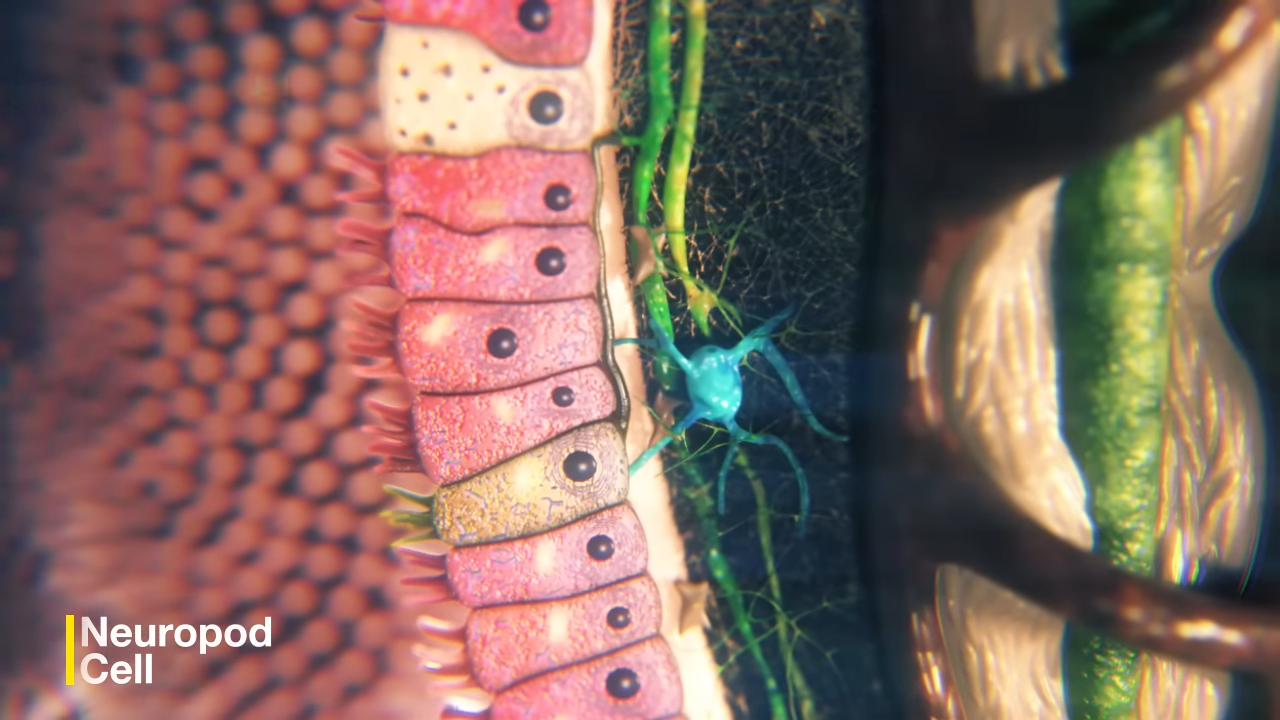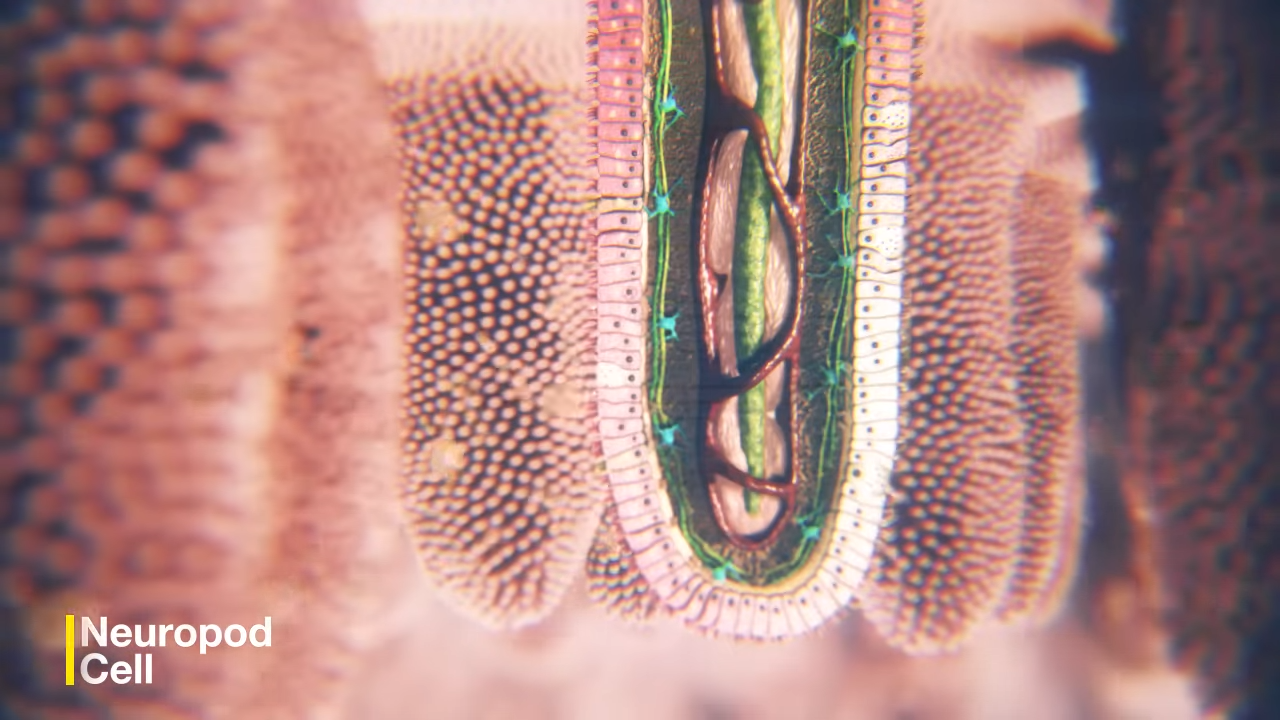Have you ever noticed how your stomach seems to know what you’re feeling? That strange sensation of “butterflies” before an important presentation, or the way stress can trigger digestive issues? These aren’t coincidences, they’re evidence of a sophisticated communication network that scientists are only beginning to fully understand: the mind-gut connection.
Understanding the Fascinating Mind-Gut Connection: An Introduction
When I was in graduate school studying neuroscience, I remember being fascinated by an unexpected discovery. While researching brain pathways, I stumbled upon studies showing how our digestive system communicates with our brain in ways far more complex than previously thought. What struck me most was learning that this communication happens within seconds, not hours or days, and can profoundly affect both our physical and emotional well-being.
For centuries, scientists and medical practitioners have been captivated by how the gut and brain communicate. Today, we understand this as the “mind-gut connection” or “gut-brain axis,” a sophisticated two-way communication system that transmits information between your digestive tract and your central nervous system.
This article uncovers the latest scientific understanding of this remarkable connection and offers practical advice for supporting optimal gut-brain health.

How Your Brain and Gut Talk to Each Other: The Communication Network
The connection between your brain and gut is remarkably sophisticated. Unlike other body systems that communicate primarily through hormones or a few nerve connections, the gut-brain axis uses multiple pathways simultaneously:
The Vagus Nerve: Your Information Superhighway
At the center of the mind-gut connection is the vagus nerve, the longest cranial nerve in your body. This nerve serves as the primary highway for information traveling between your digestive system and brain.
When you eat food, your digestive tract does more than just process nutrients; it actively gathers information and sends it to your brain via the vagus nerve within seconds. This rapid communication allows your brain to respond quickly to what’s happening in your digestive system.
The vagus nerve carries both sensory signals (from gut to brain) and motor signals (from brain to gut), creating a continuous feedback loop that helps regulate digestion, mood, and even cognitive function.
The Enteric Nervous System: Your “Second Brain”
Within the walls of your digestive tract lies what scientists call the enteric nervous system (ENS), a complex network of more than 500 million neurons. This extensive neural network is so sophisticated that it can operate somewhat independently of your central nervous system, which is why many researchers refer to it as your “second brain.”
The enteric nervous system controls many digestive functions without needing direct input from your brain. It can:
- Coordinate the muscle contractions needed for digestion
- Regulate the secretion of digestive enzymes
- Monitor the chemical composition of your intestinal contents
- Send sensory information to your brain

The Special Cells That Link Food to Feelings: Neuropod Cells
One of the most significant discoveries in gut-brain research involves specialized cells called enteroendocrine cells, particularly a subset known as “neuropod cells.” These remarkable cells act as the gut’s sensors and form the front line of communication with your brain.
What Makes Neuropod Cells Special?
Neuropod cells are unlike other cells in your digestive system. Located within the single layer of epithelium that lines your intestines, they have unique properties:
- Sensory abilities: These cells can detect mechanical pressure, temperature changes, and chemical composition of food in your intestines.
- Direct neural connections: Unlike most gut cells that communicate solely through hormones, neuropod cells form actual synapses (connections) with neurons, including those of the vagus nerve.
- Signal conversion: When neuropod cells detect stimuli from food or gut bacteria, they convert these signals into electrical impulses, similar to how neurons in your brain communicate.
![Illustration of Neuropod Cells – showing their location in the intestinal lining and connection to vagal neurons]
The Villi-Epithelium Interface
Your small intestine is lined with countless tiny, finger-like projections called villi. These villi are covered with a single layer of epithelial cells, which include:
- Absorptive cells (enterocytes) that take in nutrients
- Goblet cells that produce protective mucus
- Enteroendocrine cells, including neuropod cells, that sense the gut environment
This arrangement allows neuropod cells to directly sample the contents of your intestines and rapidly relay information to your brain.
How Food Influences Brain Function in Seconds
One of the most remarkable aspects of the mind-gut connection is the speed at which information travels between these systems. Through the neuropod cell-vagus nerve pathway, signals generated in your gut can reach your brain within seconds of eating.
The Signal Transmission Process
- Detection: When you eat, food particles enter your small intestine and come into contact with the epithelial lining.
- Sensing: Neuropod cells detect specific nutrients, bacterial byproducts, or other chemical signals in the intestinal environment.
- Signal conversion: These chemical signals are converted into electrical impulses within the neuropod cells.
- Transmission: The electrical signals travel via synapses to vagal neurons.
- Brain integration: The vagus nerve carries these signals to the brainstem, which then distributes this information to various brain regions involved in digestion, mood regulation, and cognitive function.
This rapid communication explains why certain foods can make you feel better almost immediately your brain is getting real-time updates from your gut.
The Gut Microbiome: The Third Player in the Mind-Gut Connection
When discussing the mind-gut connection, we must acknowledge a third critical component: the gut microbiome, the trillions of bacteria, fungi, and other microorganisms that live in your digestive tract.
How Gut Bacteria Influence Your Brain
Research shows that gut bacteria produce or influence the production of many neurochemicals that your brain uses to regulate physiological and psychological processes, including:
- Serotonin: Often called the “happiness hormone,” approximately 90% of your body’s serotonin is produced in your gut under the influence of gut bacteria.
- GABA: A neurotransmitter that helps control feelings of fear and anxiety.
- Dopamine: Important for motivation, reward, and pleasure.
- Short-chain fatty acids: Bacterial byproducts that can influence brain function and development.
The composition of your gut microbiome can significantly impact these neurochemical levels, potentially affecting your mood, stress response, and even cognitive abilities.
The Mind-Gut Connection and Mental Health

The bidirectional communication between your gut and brain means that each can significantly influence the other’s function and health. This connection helps explain why:
Digestive Issues Often Accompany Mental Health Conditions
Research shows that up to 90% of people with irritable bowel syndrome (IBS) also experience conditions like:
- Anxiety disorders
- Depression
- Chronic stress
For decades, scientists believed that psychological distress caused digestive symptoms. Now we understand it works both ways, digestive issues can also trigger or worsen psychological symptoms through the gut-brain axis.
Stress and Anxiety Can Trigger Digestive Problems
When you experience stress or anxiety, your brain sends signals to your gut that can:
- Alter gut motility (how quickly food moves through your digestive tract)
- Increase gut sensitivity
- Change the blood flow to the digestive organs
- Affect the balance of gut bacteria
These changes can manifest as abdominal pain, bloating, diarrhea, or constipation, physical symptoms triggered by psychological states.
![Illustration showing the cycle of stress affecting gut health and gut health affecting mental state]
Signs Your Gut Health May Be Affecting Your Mental Health
Understanding the connection between your gut and brain can help you identify when digestive issues might be influencing your mental well-being. Common signs include:
- Persistent digestive issues alongside mood changes: Experiencing bloating, irregular bowel movements, or abdominal discomfort along with anxiety, low mood, or brain fog.
- Food sensitivities that affect mood: Noticing that certain foods trigger both digestive symptoms and changes in mood or energy levels.
- Chronic inflammation: Persistent inflammation in the gut can send inflammatory signals to the brain, potentially contributing to depression and anxiety.
- Sleep disturbances with digestive symptoms: Poor gut health can affect sleep quality, which in turn impacts mental health.
If you’re experiencing these symptoms, addressing your gut health might improve your mental well-being.
Practical Ways to Support Your Mind-Gut Connection
Nurturing a healthy gut-brain connection doesn’t require complicated interventions. Here are evidence-based strategies to support optimal communication between these vital systems:
Dietary Approaches for a Healthy Gut-Brain Axis
What you eat directly impacts both your gut microbiome and brain function. Consider incorporating:
Probiotic-Rich Foods
These contain beneficial live bacteria that support gut health:
- Yogurt with live cultures
- Kefir
- Sauerkraut and kimchi
- Kombucha
- Miso
Prebiotic Foods
These feed the beneficial bacteria in your gut:
- Garlic and onions
- Asparagus
- Bananas
- Oats
- Jerusalem artichokes
- Beans and legumes
Anti-Inflammatory Foods

These help reduce inflammation that can disrupt the gut-brain connection:
- Fatty fish rich in omega-3s (salmon, mackerel, sardines)
- Colorful fruits and vegetables
- Olive oil
- Nuts and seeds
- Turmeric and ginger
Foods to Limit
Some foods may negatively impact the gut-brain axis:
- Ultra-processed foods
- Artificial sweeteners
- Excessive alcohol
- Foods high in refined sugars
- Foods you’re personally sensitive to
Stress Management for Gut-Brain Health
Since stress can significantly impact your digestive system, managing stress is crucial for maintaining a healthy gut-brain connection:
- Mindfulness meditation: Regular meditation practice has been shown to reduce stress and may help manage symptoms of IBS and other functional gut disorders.
- Deep breathing exercises: Activating the vagus nerve through deep, diaphragmatic breathing can help calm both your nervous system and digestive tract.
- Regular physical activity: Exercise reduces stress hormones and promotes healthy gut function. Aim for at least 30 minutes of moderate activity most days.
- Adequate sleep: Poor sleep can disrupt your gut microbiome and increase stress. Prioritize 7-9 hours of quality sleep each night.
- Social connection: Positive social interactions can reduce stress and promote overall well-being, including gut health.
Mind-Gut Connection and Common Health Conditions
The gut-brain axis plays a role in numerous health conditions. Understanding these connections can help with more effective management:
Irritable Bowel Syndrome (IBS)
IBS is perhaps the most well-known condition associated with the gut-brain connection. Characterized by abdominal pain, bloating, and altered bowel habits, IBS symptoms often worsen during periods of stress.
Treatment approaches that target both the gut and brain, such as:
- Low-FODMAP diet
- Gut-directed hypnotherapy
- Cognitive behavioral therapy
- Certain antidepressants that act on gut nerves
- Mindfulness-based stress reduction
…have shown greater effectiveness than treatments targeting only digestive symptoms.
Anxiety and Depression
Emerging research suggests that gut health may influence the development and management of anxiety and depression. Studies have found:
- People with anxiety and depression often have different gut microbiome compositions than those without these conditions
- Certain probiotic strains may help reduce symptoms of anxiety and depression
- Inflammation originating in the gut can contribute to depressive symptoms
This doesn’t mean all mental health conditions are caused by gut issues, but addressing gut health may complement traditional treatments.
Autism Spectrum Disorders
Research has noted that many individuals with autism spectrum disorders (ASD) experience gastrointestinal symptoms. While more studies are needed, some evidence suggests that:
- Children with ASD often have different gut microbiome compositions
- Gastrointestinal symptoms may correlate with the severity of behavioral symptoms in some cases
- Dietary interventions that support gut health might help manage certain symptoms in some individuals
The Potential Dark Side: When the Mind-Gut Connection Goes Awry
While the gut-brain connection is generally beneficial, it can sometimes become a pathway for problems:
The Gut as a Potential Gateway to the Brain
Recent research has raised concerns that the neuropod cell connection with the vagus nerve might serve as a potential portal for certain pathogens to access the brain. Some studies suggest that:
- Certain gut infections might trigger inflammation that affects brain function
- Some neurodegenerative conditions may be linked to changes in gut bacteria or intestinal permeability
- The gut-brain pathway might play a role in conditions like Parkinson’s disease
These findings emphasize the importance of maintaining gut health as a potential preventative measure for neurological health.
The Future of Mind-Gut Research and Treatment
The field of gut-brain research is advancing rapidly, with promising implications for treating various conditions:
Emerging Therapeutic Approaches
- Tailored probiotics: Scientists are developing specific probiotic formulations targeting both mental health and digestive symptoms.
- Vagus nerve stimulation: Non-invasive techniques to stimulate the vagus nerve may help manage conditions ranging from depression to inflammatory bowel disease.
- Microbiome-based therapies: Treatments that aim to restore healthy gut bacterial communities through targeted interventions beyond basic probiotics.
- Integrated treatment models: Healthcare approaches that simultaneously address both psychological and digestive aspects of conditions.
What This Means for You
As our understanding of the mind-gut connection grows, we’re moving toward more holistic treatments that recognize the interconnectedness of body systems. In the meantime, you can apply current knowledge by:
- Working with healthcare providers who understand the gut-brain connection
- Paying attention to how stress affects your digestive system
- Noticing how different foods impact both your digestion and mood
- Taking a proactive approach to both mental and gut health
Frequently Asked Questions About the Mind-Gut Connection
Q: How quickly can my gut affect my brain?
A: Through the neuropod cell-vagus nerve pathway, signals from your gut can reach your brain within seconds. This explains why you might feel immediate emotional effects from certain foods or digestive sensations.
Q: Can improving my gut health help my anxiety?
A: While not a replacement for medical treatment, growing evidence suggests that supporting gut health may help reduce anxiety symptoms in some people. This likely works through several mechanisms, including reducing inflammation and supporting the production of mood-regulating neurotransmitters.
Q: What’s the single most important thing I can do for my gut-brain health?
A: Rather than one magic solution, focus on the foundations: a diverse, plant-rich diet, stress management techniques, adequate sleep, and regular physical activity. These factors work synergistically to support optimal gut-brain communication.
Q: Can gut issues in children affect brain development?
A: Research suggests that early gut health may play a role in brain development. The gut microbiome develops alongside the brain in early life, and disruptions might influence cognitive and emotional development. This is an active area of research.
Q: I’ve been feeling anxious and bloated—could these be related?
A: Yes, anxiety and digestive symptoms like bloating often occur together due to the bidirectional communication between your gut and brain. Stress can alter gut function, causing bloating, while gut issues can send signals to your brain that may contribute to anxiety. Addressing both aspects often yields better results than treating either in isolation.
Conclusion: Nurturing Your Mind-Gut Connection
The fascinating communication network between your gut and brain represents one of the most important discoveries in our understanding of human health. This connection transforms food into feelings, influences our mood and cognition, and may even play a role in the development of various health conditions.
By supporting your gut health through proper nutrition, stress management, and lifestyle practices, you’re simultaneously supporting your mental wellbeing. Likewise, taking care of your mental health can positively impact your digestive function.
Remember that the mind-gut connection is highly individual; what works for someone else might not work for you. Pay attention to your body’s signals, work with knowledgeable healthcare providers, and be patient as you discover the approaches that best support your unique mind-gut relationship.
As research advances, we can look forward to more targeted ways to harness this powerful connection for better health and well-being.